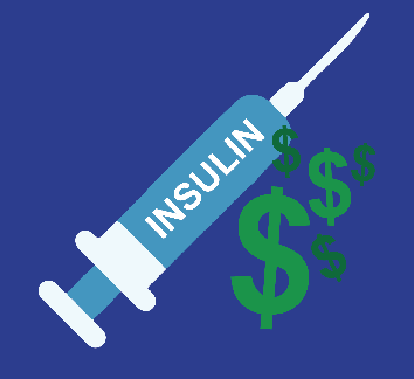For people living with Type 1 Diabetes, it is a challenge to constantly balance your sugar levels with medicine, food and exercise. However it is important to use insulin to help maintain a good blood sugar rate in case of complications. Yet with rising prices, people who are diagnosed with Type 1 Diabetes would be forced to ration their medicine, which could lead to deadly consequences.
According to U.S. News, the price of insulin for Americans who have Type I Diabetes has increased dramatically from the year 2012 to 2016. Reports from the Health Care Cost Institute stated that the price of insulin medication has been ranged around $5,705, which is double the original cost of $2,864. This dramatic revelation and change of price also comes through in early January with the government shutdown, affecting federal workers with Type I Diabetes. HCCI senior researcher Jeannie Fuglesten Biniek noted that the uptick in insulin was more due to price instead of individuals looking for other treatment methods.
“Use is pretty flat, and the price changes are occurring in both older and newer products. That surprised me. The exact same products are costing double,” said Biniek.
According to healthline.com, there are reports that some individuals are forced to ration their insulin due to rising prices. David Kliff of Diabetic Investor noted that it isn’t fair to keep blaming pharmaceutical companies, since payers and negotiations of price were also a factor.
“They keep raising prices to keep the net effective price in an acceptable range,” said Kliff.
In political matters, the current Trump Administration, as well as Democratic lawmakers, have been working to lower the cost of insulin medication. However skeptics like HCCI CEO Niall Brennan on ModernHealthCare.com, are concerned more on the rising numbers of Type I Diabetes patients and the large cost it takes for the medication to keep someone alive.
“You literally have a captive, near helpless customer base when it comes to Type 1 diabetics and insulin,” said Brennan.
By rationing insulin, a patient with Type I Diabetes would be at risk of diabetic ketoacidosis. This would cause the high blood sugar to become acidic, which would dehydrate cells in the body and cause it to cease functioning.
Biniek offered the solution that instead of complaining about the current or rising prices of current insulin medication, there should be a search for pharmaceutical companies to create new insulin products that could provide buyers with more bang for their buck.
“These aren’t increases in prices for innovative products; these are increase in price for the exact same thing and for things that have been around for decades” said Biniek.
Kliff also said that the innovation of insulin, which is like a commodity, would be at a high cost of pharmaceutical companies.
“The bottom line is: if I’m Dave Ricks, and I’m the CEO of Eli Lilly, my first responsibility is to my stakeholders, and they didn’t invest in Eli Lilly so I could give insulin away,” said Kliff.
While the government is trying to help people with the rising cost of insulin and the call for new innovations in diabetes medication, it shouldn’t be allowed to continue for people to continue risking their lives. Hopefully, there will be a compromise to give people with Type I Diabetes a chance to live free of fear that they will not have access to life-saving medicine.




